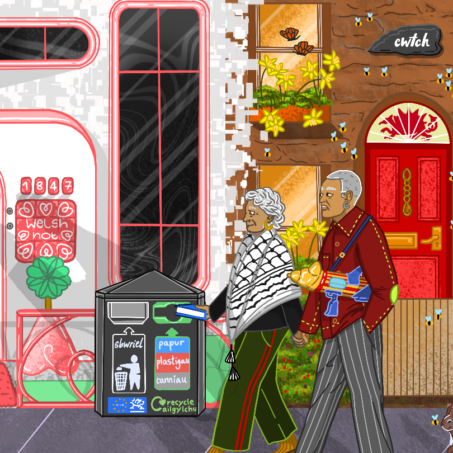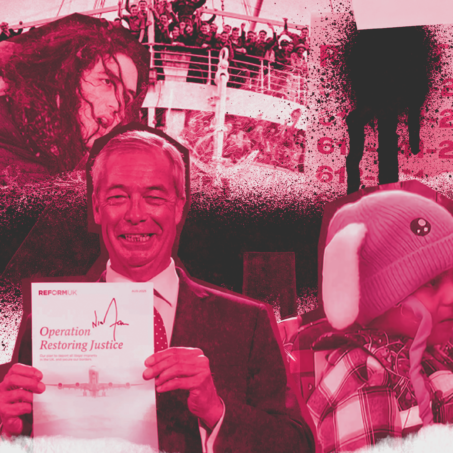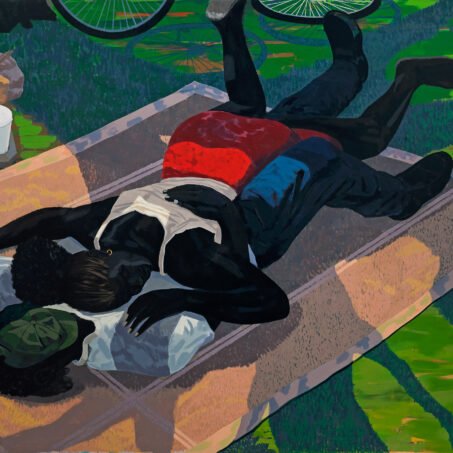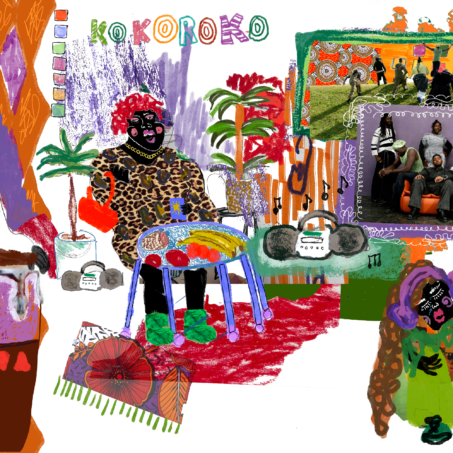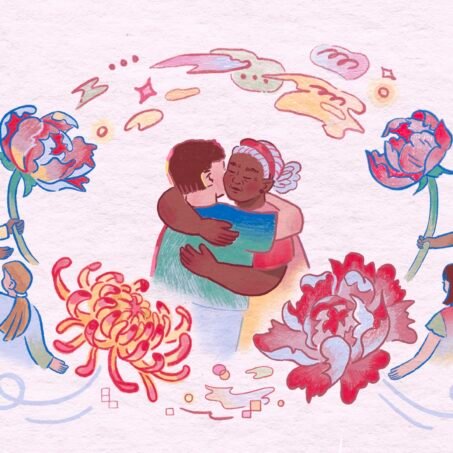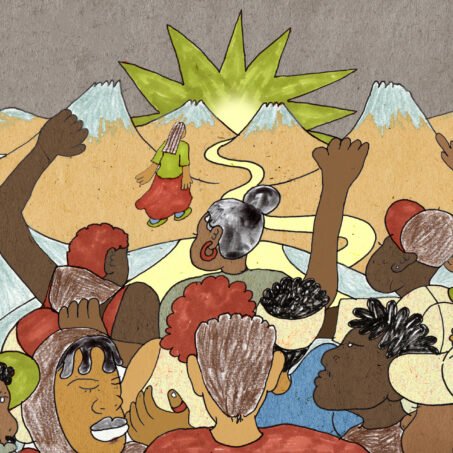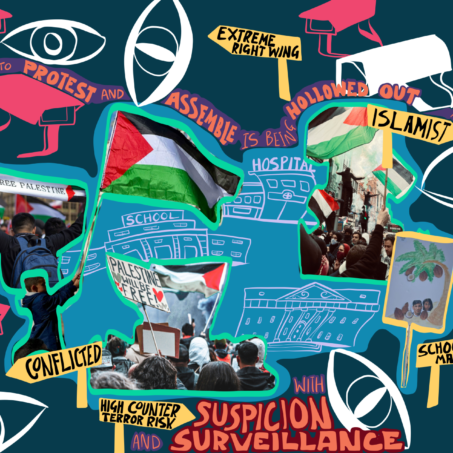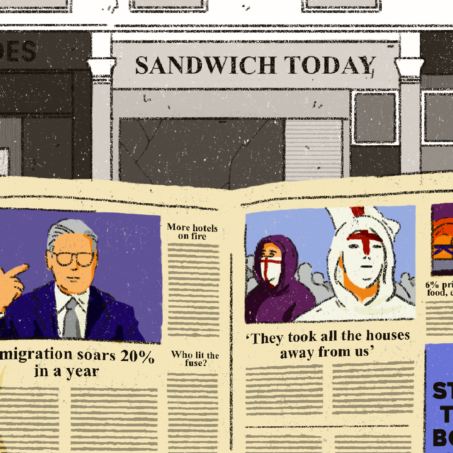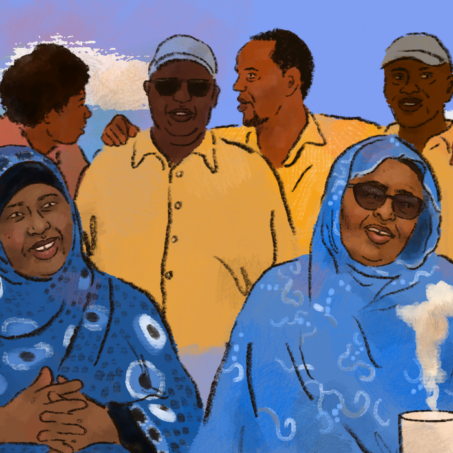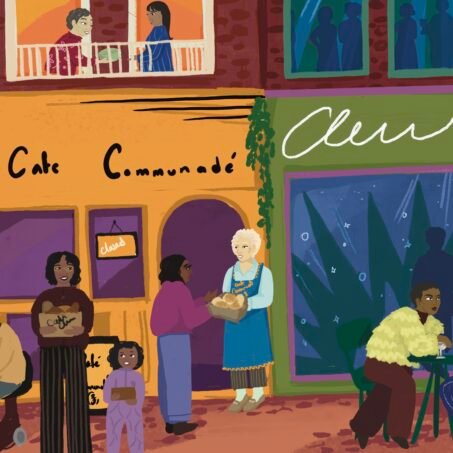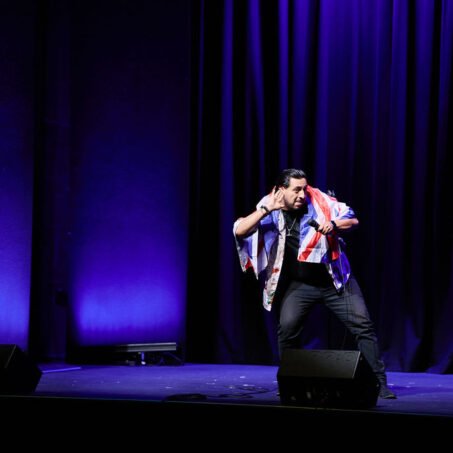As I write this, I’ve spent a week in bed. And not in a fun, me-and-my-partner-are-having-such-a-crazy-time-we’ve-not-got-out-of-bed-way. I’ve been holed up suffering from a cold, which then caused a flare up of multiple health conditions that completely knocked me out. It was only a few weeks ago that I was similarly stuck in bed, unable to walk, after making too many plans on the weekend which tired me out and caused another flare up. This is the unglamorous rotation of events which comes with living with a disability.

In the last two years, health has dominated headlines like never before. So as someone who’s been desperately avoiding discussing issues relating to their own health for years, the subject being thrown into the spotlight… complicated things. Being in the ‘vulnerable’ category during the worst months of COVID-19 restrictions meant I had to confront the way disability impacts my life in a way I never had to before.
This was then compounded after I started a new relationship just out of lockdown, which forced me to look at how my disability affects the way I navigate relationships, sex and intimacy. Importantly, it also allowed me to confront the reasons why I’d been running away from those questions for so long.
Prior to the pandemic, I felt like my body was trapped in an endless cycle. I’d try to push myself a little bit further, to try and live a life of a ‘normal’ 24 year old, and then end up paying for it for weeks, cancelling social plans and struggling to work. It’s why so many of my emotions around my body have been tied up in anger. The age-old mantra goes that ‘our body is a temple’ which we need to treat well – but why should I, when it doesn’t do the same for me?
My body as a site of pleasure and pain
My feelings of anger towards my body are impossible to disentangle from how I feel about sex and intimacy. I know that great pleasure can be found from our bodies, but when mine causes me pain, I struggle to separate the fact that a body can do both. That my body can do both. For me, as these last few weeks show, bed is somewhere you go when you’re sick, not when you want to have an orgasm.
My relationship with my body has always been complicated. I find myself despairing over my inability to be normal, while also frustrated with myself for buying into the idea of ‘normalcy’ when it comes to bodies.
So I just hide away from it and avoid addressing my insecurities. Because, throughout my life, my disability has meant I have to constantly cancel plans with friends, look for part-time jobs that allow me the flexibility to visit health appointments (while still ensuring I can make a living) and accept the fact that I might not get to achieve everything I want to in life. It also meant I didn’t know how COVID-19 may affect my body and I had to be cautious.
I ended up back living with my Mum during the first lockdown, and I expected those feelings of resentment for my body to swell – annoyed that my life was once again being limited by my health condition.
Health stopped being taboo
But, for the first time, I didn’t feel isolated by having a conversation about my health – because everyone was doing it. With events forced online and people’s social lives limited, a wider conversation was opened concerning accessibility. Those who previously hadn’t had to think what a life was like when you’re not as mobile and spaces aren’t always open to you, were now finding themselves having those conversations.
Issues concerning access, which disabled people have been trying to have a conversation about for years now, were finally being given the spotlight. People were looking at how we could use digital tools to open up organisations and spaces that hadn’t always been the most welcoming to disabled people.
The pandemic actually didn’t make me more annoyed with my body (as I had expected), it made me realise that my body and I aren’t in this conflict I’d spent the last two decades picturing us as being in. I needed to realise we weren’t two separate entities wanting different things.
Dating in a pandemic
Having the world stop felt intimidating, but it also gave me space to really untangle how I felt – and to finally have the conversation with myself about how being disabled affected the way I saw my body and the way I approached relationships.
And it wasn’t just me – the pandemic changed the way everyone dated. Those who turned their noses up at dating apps now had no other way of meeting people. FaceTime became the new date night. I was actually meant to go on a first date the week the world changed, but we postponed it and ended up messaging and FaceTiming throughout lockdown. I’d always had a nervousness around dating (more than just first date jitters), constantly worrying over what point I should tell someone about my disability.
From looking at me – unless it’s a day I’m using a walking stick – you can’t tell that I’m disabled, which has its benefits, but it also means I have to choose when to have that conversation with someone I’m dating. And it’s not just a conversation of ‘Hey I have this thing’, it’s that my health can cut our dates short, mean I have to cancel seeing them at the last minute when I’m in a flare up, and sometimes means sex can be painful.
Dating in a pandemic took away the pressure of having to have this conversation (as I didn’t know when or even if we’d meet in person). I was excited at the thought of not having to tell someone and get to know them without mentioning my disability or it getting in the way. But I actually found I really wanted to tell them. I wanted the person I was talking to to know about my disability and, from not saying it, I felt like they weren’t truly getting to know me.
I realised that the main feeling I’d always associated with my disability and with my body was embarrassment. Embarrassment that my body didn’t ‘work’ properly, that I could never be a spontaneous or adventurous girlfriend. But here I was, under no obligation to tell this person that I had a disability, and suddenly it was bursting out of me. I met someone I wanted to share myself with, and I realised that by hiding my disability, I’d only been limiting myself to only sharing half of me.
My complicated relationship with sex
I’d always seen sex as something to avoid as it could cause me pain and I didn’t think anyone would understand my disability and the impact of it on us having sex. But when the pandemic and lockdown stretched ahead of me with no end in sight, I realised how much I’d already lived my life in isolation, often choosing to not date or have sex as it felt like the simpler option where I didn’t have to explain myself or put myself in a vulnerable position.
But when everyone was isolated from each other and talking about the experiences they were missing out on, I realised how much I’d already made myself miss out on. Yes, anyone I’d have sex with, I needed to have a conversation with beforehand to talk about how my disability impacted it – but shouldn’t everyone be having conversations around their sex lives? Around what feels good, what doesn’t, what they like? I had just as much a right to a healthy sex life as anyone else. My disability is not an inconvenience, it is just part of the conversation.
And I felt like it wasn’t just me who was reevaluating their relationship to sex and their body during lockdown, it felt like it was a moment of quiet that left lots of us asking ourselves what we wanted out of relationships and dating when the world started up again. I also felt like the space where I’d usually have these conversations around sex and relationships (even if just with my friends over a coffee) had suddenly disappeared due to the pandemic.
So I wanted to create that space to have those conversations again, and it led to me creating a new writing night at Lemon House Theatre, a company I co-run, that explored sex, bodies and relationships and addressed how shameful these conversations may feel. The writing night was created as a place for people to have these conversations openly and honestly.

Join our mailing list
Sign up for shado's picks of the week! Dropping in your inbox every Friday, we share news from inside shado + out, plus job listings, event recommendations and actions ✊
Sign up for shado's picks of the week! Dropping in your inbox every Friday, we share news from inside shado + out, plus job listings, event recommendations and actions ✊
Accepting my body
I’m not saying I’ve found the answer to having a perfect relationship with my body, because I don’t think there is such a thing. Having had one health flare up after another recently, I saw myself slip back into old thoughts of resentment and anger at my body, but I’ve also realised that my body and I are on the same side, not in this conflict I’ve seen us as having been in ever since my disability got diagnosed.
What the pandemic has made clear is that my health needs to be my first priority – and that’s the first step in accepting my body for what it is.
I’m still working to disentangle how my disability impacts my relationship with sex and intimacy, but at least its now a conversation I’m having. It was also an amazing experience to have recently had this conversation around sex, bodies and intimacy much more widely as part of Lemon House Theatre’s new online writing night Behind Closed Doors. Though the writing night may now have drawn to a close, I know it’s a conversation I’ll continue to have.
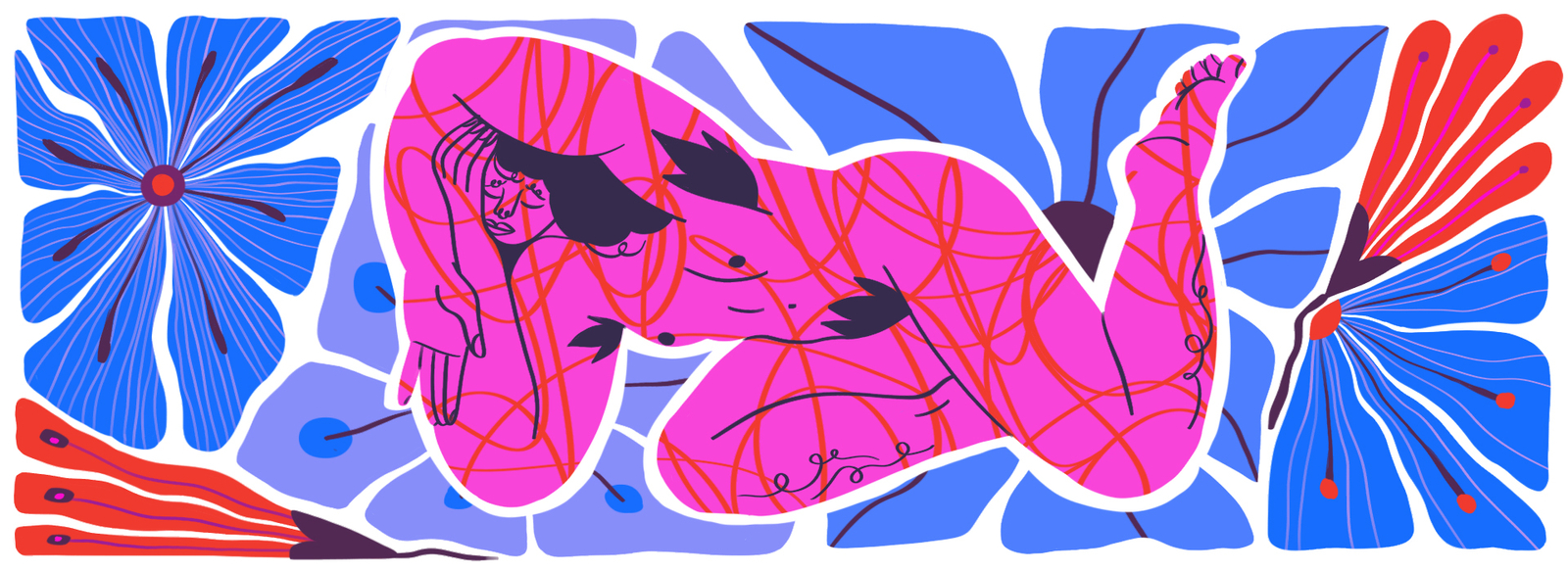
You can find out more about Lemon House Theatre’s work here.



